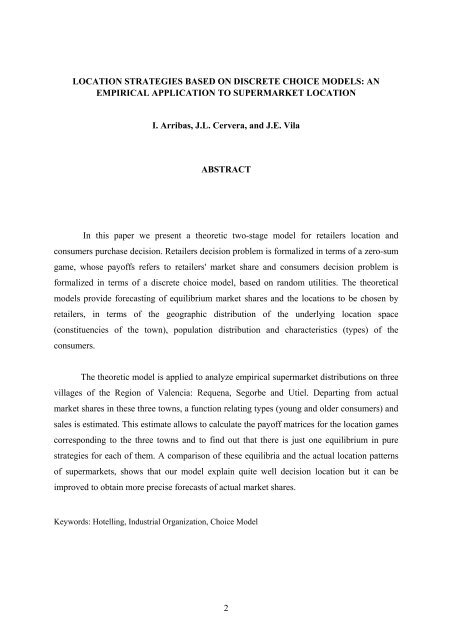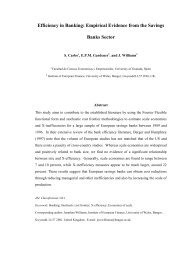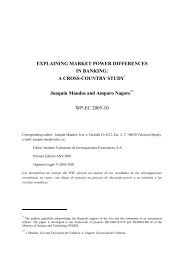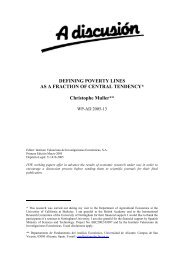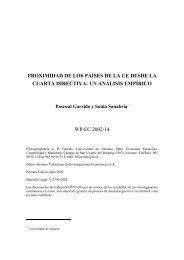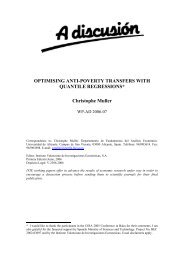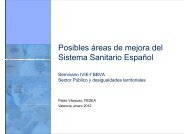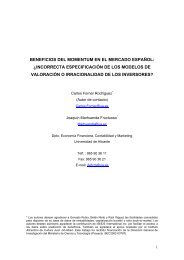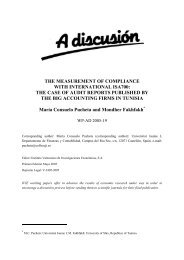Download PDF - Ivie
Create successful ePaper yourself
Turn your PDF publications into a flip-book with our unique Google optimized e-Paper software.
LOCATION STRATEGIES BASED ON DISCRETE CHOICE MODELS: AN<br />
EMPIRICAL APPLICATION TO SUPERMARKET LOCATION<br />
I. Arribas, J.L. Cervera, and J.E. Vila<br />
ABSTRACT<br />
In this paper we present a theoretic two-stage model for retailers location and<br />
consumers purchase decision. Retailers decision problem is formalized in terms of a zero-sum<br />
game, whose payoffs refers to retailers' market share and consumers decision problem is<br />
formalized in terms of a discrete choice model, based on random utilities. The theoretical<br />
models provide forecasting of equilibrium market shares and the locations to be chosen by<br />
retailers, in terms of the geographic distribution of the underlying location space<br />
(constituencies of the town), population distribution and characteristics (types) of the<br />
consumers.<br />
The theoretic model is applied to analyze empirical supermarket distributions on three<br />
villages of the Region of Valencia: Requena, Segorbe and Utiel. Departing from actual<br />
market shares in these three towns, a function relating types (young and older consumers) and<br />
sales is estimated. This estimate allows to calculate the payoff matrices for the location games<br />
corresponding to the three towns and to find out that there is just one equilibrium in pure<br />
strategies for each of them. A comparison of these equilibria and the actual location patterns<br />
of supermarkets, shows that our model explain quite well decision location but it can be<br />
improved to obtain more precise forecasts of actual market shares.<br />
Keywords: Hotelling, Industrial Organization, Choice Model<br />
2


